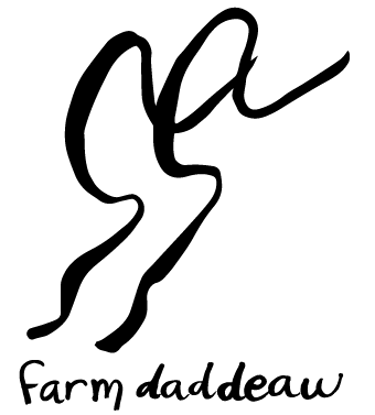Have you ever felt this way? Despite doing your best to eat well, exercising regularly, and taking care of your health, your body still feels off —persistent bloating, sensitive digestive system, or getting sick easily. The cause could be hiding in the very food you thought was healthy—chicken.
The truth may be more alarming than you think: antibiotic residues lurking in the chicken meat we eat daily, silently building up in our bodies without our awareness.
According to a report from World Animal Protection, over 40% of chicken meat and liver samples in Thailand were contaminated with antibiotic residues. This isn’t just a statistic—it’s something that could be on your dinner plate tonight.
Behind the Barn Doors: Why the Chicken Industry Relies Heavily on Antibiotics
Many people assume antibiotics are only used to treat sick chickens. But in reality, industrial farming is far more complex. These drugs are not primarily used for treatment, but as a preventative measure, even before any signs of illness.
Every year, an estimated 100,000–200,000 tons of antibiotics are produced worldwide. Shockingly, over 75% of those antibiotics are not used on humans—but on livestock, especially chickens, pigs, and cattle.
In large-scale industrial chicken farms, which focus on maximizing volume and shortening production cycles, antibiotics are often mixed directly into chicken feed for three key reasons:
- Disease Prevention (Prophylactic Use): With tens of thousands of birds crammed into confined spaces, disease can spread like wildfire. If one bird gets sick, the entire flock is at risk. Prophylactic antibiotics serve as an insurance policy to minimize catastrophic loss.
- Growth Promotion: Certain antibiotics act as growth promoters, enhancing feed efficiency and accelerating weight gain. This leads to faster turnover and reduced feed costs.
- Production Efficiency: Faster growth means quicker processing. The sooner chickens are market-ready, the more batches a farm can raise per year—translating into higher profit.
While this may seem like smart business strategy, for consumers, it’s the beginning of a silent health crisis.
The Hidden Harm: What These Residues Do to Your Body
Many people assume cooking kills off these medications—but many antibiotic residues are heat-resistant and survive the cooking process. Once consumed, they enter your body and begin to take a toll:
- Disrupting Your Gut Microbiome: Your gut is a delicate ecosystem filled with trillions of beneficial microbes. Antibiotic residues can disrupt this balance—like dropping a bomb in a peaceful city—leading to bloating, digestive issues, and conditions like leaky gut.
- Fueling Antibiotic Resistance: Constant low-dose exposure to antibiotics allows bacteria in your body to evolve and resist treatment. When you really need antibiotics, they might no longer work.
- Chronic Inflammation & Allergies: Gut imbalance directly affects your immune system, potentially triggering unexplained allergies, chronic inflammation, and long-term health conditions.
The health of the chicken you eat shows up in your own health.
Farm Daddeaw: A Natural Philosophy That Goes Against the Grain
In a world where industrial farming depends on chemicals, Farm Daddeaw believes in something simpler but more powerful: raising chickens according to nature’s principles.
That means:
- No antibiotics
- No vaccines
- No growth hormones
Instead of using drugs as band-aids, we ask: What does a healthy chicken truly need?
We build an environment where chickens thrive naturally—developing strong immune systems through a rich, stress-free life. We stay far away from confinement and chemical dependency.
The Power of Movement: “Daily Moves” as a Core Principle
At the heart of Farm Daddeaw’s practice is a system called NOMAD Pasture-Raised, and we stick to it every single day.
Each morning, our chickens are moved to a fresh patch of pasture—lush with grass, insects, and clean soil. This does more than keep things tidy. It brings a host of natural benefits:
- Superior hygiene: Daily relocation means chickens never sit in yesterday’s waste—breaking the disease cycle without needing disinfectants.
- Natural nutrition: Fresh grass offers chlorophyll and micronutrients. Bugs and worms provide high-quality protein—offering a diverse diet for our birds.
- Low-stress living: Chickens bask in gentle sunlight, breathe fresh air, and engage in natural scratching. This eliminates stress, illness, and pecking among birds.
This NOMAD pasture-raised system isn’t just idyllic—it’s the gold standard of regenerative animal farming, and Farm Daddeaw is the only farm in Thailand that is currently practicing this.
Healthy Chickens = Better Flavor = Better You
When chickens grow slowly, freely, and naturally, the result is more than just healthy meat—it also yields extraordinary taste and nutrition:
- Texture: Firm yet tender meat, naturally juicy—not mushy or dry.
- Color: Naturally golden skin and fat from beta-carotene in fresh pasture—not artificial additives.
- Flavor: Rich and deep, like how chickens are supposed to taste.
- Nutrient density: Packed with vitamins and minerals from grass, soil, and bugs—not synthetic supplements.
Don’t Leave Your Health in the Hands of Factory Farms
Chickens that need drugs to survive are inherently weak, and consuming weak animals leads to weakened human health.
We believe you deserve food that’s safe enough for your kids to eat daily—without fear of hidden chemicals or long-term damage.
Farm Daddeaw is Your Answer
Farm Daddeaw strives to raise the best chicken possible. We want to nourish our community and our loved ones with confidence in our food.
🛒 Experience the difference with NOMAD Pasture-Raised chicken from Farm Daddeaw—delivered straight to your door anywhere in Thailand.
📱 Order via Line: @farmdaddeaw

